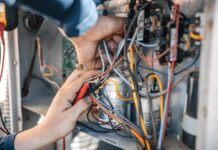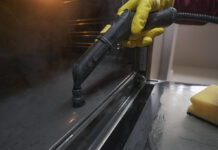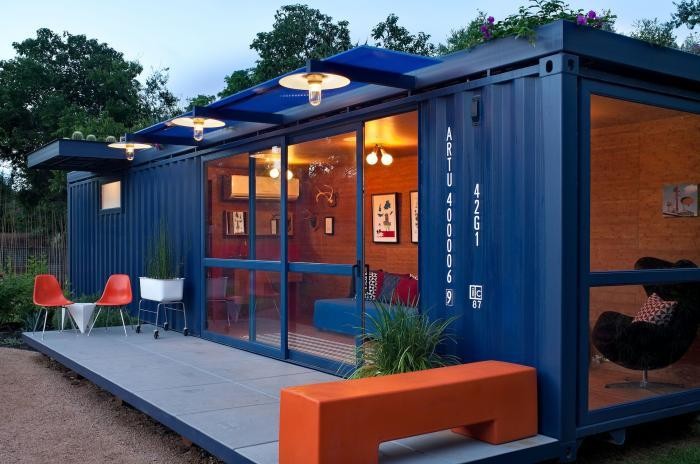If you’re thinking about remodeling your house, don’t just focus on aesthetics. Also, consider how you can save more energy. So when you remodel your home, be on the lookout and fix energy leaks while also achieving your aesthetic space planning goals all in one go.
Which improvements will reduce my energy costs the most and increase the value of my home the most? For instance, you can consider installing a Kapton heating system, which is proven to be more energy-efficient.
It’s crucial to balance your home project’s energy efficiency objectives with your aesthetic preferences while keeping an eye on your budget. Here are a few ideas to help you make your house more energy efficient.
Add Insulation Layer To Attic
According to a fact sheet published by the United States Department of Energy, a more significant amount of insulation is always preferable. There are many kinds of insulation, different R-Values for each zone, and the appropriate amounts for each region.
Insulation in newer homes is generally superior to that in older homes built more than a few decades ago. If you live in an older house, an upgrade is a must. Much of the home’s energy is lost in the attic due to how quickly hot air rises.
This means you can save money on your utility bills by adding an extra layer of insulation to your home during renovations.
Light Fixtures
Lighting fixtures account for a sizeable portion of overall energy consumption. If you want your home to be more energy-efficient, you should think about using CFL or LED light bulbs whenever you replace old bulbs or install new light fixtures. Less heat radiates from them, and they last longer.
Consider putting a skylight in your home if you plan on doing significant roofing work soon. They provide your home with a dose of natural light. Before you install anything, you should check the structural plans of your house to make sure it’s feasible.
Upgrade Your Heating System
When you are remodeling your home, pay special attention to your heating system. If you have been using an old water heating system, it is probably time to look into getting a new flexible heater element.
A hot water system has an expected lifespan of about 12.5 years on average, and newer systems like film heaters are significantly more efficient at heating water, which means that they can help you minimize your overall energy consumption.
Install modern flexible heaters that are resistant to radiation, compression set, moisture, solvents, weathering, fungus, vacuum, oils, and chemical attacks. They also have a wide temperature range and come with a thermostat. Hence, they are reliable and can be used in various applications.
Seal Existing Windows And Doors.
Adding caulking or weatherstripping around windows can reduce the cost of heating and cooling a home. Why would anyone wish to spend additional funds to build a new front door or windows when these easy steps can fix the problem?
However, the efficiency of this solution entirely depends on your home’s condition. It most likely won’t work on older single-pane windows.
New Energy Efficient Doors and Windows
Keeping drafts and air leaks to a minimum is the goal of installing energy-efficient doors and windows. Using these energy-efficient doors and windows will save you money on both heating and cooling.
Newer windows prevent hot or cold air from flowing through small gaps, regulating the home’s temperature more efficiently.
Set Up Solar Panels.
Solar panels allow homeowners to produce heat and power from the sun, which is one of the most potent natural resources. Individual solar energy systems can save between $10,000 and $90,000 depending on the roof size, the amount of sunlight, the local electricity rates, and solar incentives.
So, if you’re looking for energy efficiency upgrades, add a solar panel to your remodeling plan.
Of course, the location of your home will influence the cost of installing solar panels. This type of technology works best for houses that receive a lot of sunlight.
Water Conservation
There are many different approaches you can take to use less water. Think about fixing or replacing faucets and showerheads that are leaking or clogged with gunk.
You can reduce the amount of water your toilets use by nearly half by upgrading to dual flush toilets from single flush toilets. For your gardens, you can also set up smart irrigation systems or a rainwater tank.
Replace the equipment in the kitchen.
Home improvement experts recommend that homeowners prioritize remodeling in the kitchen because many prospective homeowners place a high level of importance on this space.
Considering that ovens and refrigerators are two of the largest consumers of energy in the average home, investing in the most energy-efficient models will not only save money in the short term but will also increase the house’s value.
You can also replace the heating system in the kitchen to heat it at a custom range. Installing flexible silicone heaters can significantly improve your home’s energy efficiency.
Moreover, if you like to keep bakery goods in your kitchen, you can use custom flexible heaters in heated food display cases.
Insulate the Area Around Recessed Lights.
In rooms with limited space for table lamps and no overhead lighting, recessed lighting can significantly impact the ambiance and cost-effectiveness of a home. Recessed lighting is crucial in these types of rooms.
However, if you have recessed lighting, you must ensure that your electrician appropriately insulates the space surrounding the light, so there is no possibility of an air leak. Even though it seems like a minor problem, it could increase the total cost.
Replace Old HVAC Ducts in Heated Areas
In most houses, the heating, ventilation, and air conditioning (HVAC) duct systems are located in a space that is not heated, such as the attic or the basement. If it is possible to install these ducts in a space that is already heated or cooled, then the system will require less effort to heat or cool your home.
However, if this cannot be achieved due to the design of your home, you should insulate the ducts and have a professional specializing in HVAC examine the system for potential points of failure.
Wrapping Up
All of these improvements will save energy, and many will also increase the value of your home. The methods on this list may not all apply to your upcoming renovation, but studying them will help you develop the mindset necessary for an efficient and effective job. To put it another way, you’ll want to inspect and then rebuild during your renovation.
This can be a very rewarding experience. All you need to do is conduct thorough research and planning and have a specific goal in mind. Maybe even work with a remodeling expert with the necessary expertise.

















